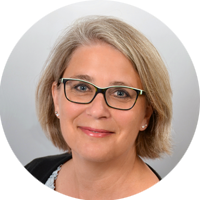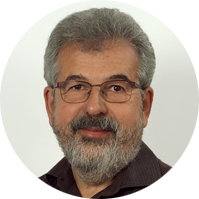Political Development and Governance in Oman
► Nation's Development ► Quotes of Sultan Qaboos ► "Arab Spring ► Peace Policy ► Legal System
Since his accession to power in 1970, Sultan Qaboos bin Said Al Said has personally determined the social and political policies for the country's development. His goal was to modernize the country in political terms without breaking with tradition. It is clear that Sultan Qaboos was one of the few rulers in the world who never abused his power.
When he passed away in January 2020, the Royal Family refrained from electing a successor and decided to open the letters deposited by Sultan Qaboos with the name of his desired successor. Within only 24 hours, the transfer of power to Sultan Haitham bin Tariq Al Said, who promised to lead the country in the spirit of his predecessor, was completed in this way.
Since 1996 there is a constitution (Kitab al Abyad). It regulates the responsibilities of the various state organs and guarantees the freedom, dignity and rights of the individual.
In the 1970s, along with the development of infrastructure, education and health care, one of the main tasks of domestic policy was the pacification and integration of tribal interests into the new nation state.
Since the 1990s, the careful introduction of democratic elements into the political system of Oman has been be observed. This includes paving the way to political participation for society's members. Although there is still some way to go, this development is unique in the region.
Sultan Qabus bin Said Al Said is assisted by the Council of Ministers, consisting of 30 appointed ministers, who in turn are supported by 41 specialized committees in their work.
Since the mid-1990s, there has been a bicameral parliament, the Majlis Oman (Oman Council), consisting of the Majlis Ad-Dowlah (Council of State) and the Majlis Ash-Shura (Consultative Council). The members of the Council of State are appointed by the Sultan, the members of the Consultative Council are elected by the people.
The Consultative Council has financial and administrative independence, has observing and controlling powers, is allowed to co-determine the state budget and to consider legislative proposals. In addition, ministers can be held accountable by the Consultative Council.
All decisions in the Oman Council are made by majority vote; the Council of State may not appoint more members than the Consultation Council.
In 2012 there was added to the parliament another decentralized body, the Majlis Al Baladija (Municipal Council). The Municipal Council consists of a total of 202 members who, with a few exceptions, are elected freely. They choose the walis (the highest office of each one of the 62 walayats (comparable to counties, which are grouped into 11 administrative districts), decide on the local development projects, have budgets, and have an advisory function to all higher bodies.
All women and men over the age of 21 have the right to vote and to run for office.
Are you interested in a trip to Oman?
► Explore Oman with ARABIA FELIX
Your contacts for travels at Arabia Felix:
Maria Popp, Karin Nowack und Georg Popp
✆ Tel.: +49 (0)89 / 30 77 92 00
✉ info@oman.de



